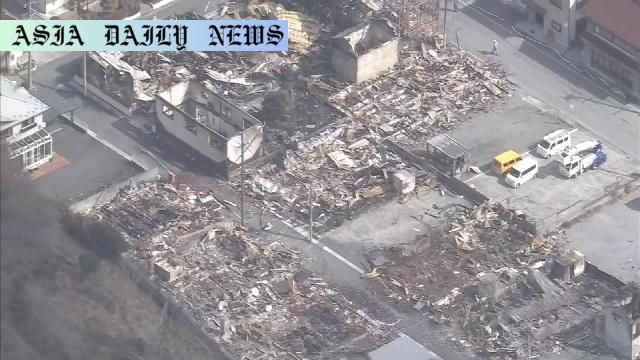Wildfires have burned through 2,900 hectares of Iwate Prefecture, prompting assessments on lifting evacuation orders for Ofunato residents.
Wildfires have burned through 2,900 hectares, which is nine percent of Ofunato City.
Evacuation orders are still affecting 11% of the city’s residents.
Local authorities are assessing wildfire risks amid returning rainfall.
Volunteer firefighters are resuming efforts to prevent fires from reigniting.

Wildfires in Ofunato: Devastation and Current Situation
The northeastern city of Ofunato in Japan, located in Iwate Prefecture, is currently dealing with the aftermath of severe wildfires that have left lasting effects on its landscape and residents. Since February 26, these flames have ravaged around 2,900 hectares of land, which constitutes nine percent of the city’s area. The impact has been profound, with 11% of the population still under evacuation orders, even as authorities begin to lift restrictions in some regions. This situation has been compounded by the fact that the fires persisted for nearly three weeks without significant rainfall. However, light rain that began on Wednesday has given rise to cautious optimism about the suppression efforts gaining momentum.
Authorities Respond Judiciously
Local officials in Ofunato are taking measured approaches to address the crisis, prioritizing safety while working to restore normalcy. On Friday, evacuation orders for select areas along the bay were rescinded. Despite this progress, the decision to generalize the lifting of evacuation orders hinges on critical factors such as evaluating the risk of residual embers reigniting the fires and ensuring local infrastructure remains undamaged or functional. Neighboring regions have offered significant support, with volunteer firefighters stepping in to prevent flare-ups from smoldering flames beginning Saturday. This collaboration showcases resilience, even as challenges persist.
Environmental and Social Implications of the Wildfires
The scale and intensity of the wildfires in Ofunato highlight the environmental vulnerability of the region. Affected residents report uncertainty about the road to recovery. Beyond immediate threats, these fires underline the importance of broader climate change mitigation measures. The charred landscape and temporary displacement of local communities point to a mixture of ecological, economic, and social consequences that require sustained intervention and support.
The Path Forward: Recovery and Preparedness
While the immediate priority remains fire suppression, discussions about long-term recovery have started to surface. Experts stress the importance of reforestation, strategic firebreak installation, and community training in wildfire response to mitigate future risks. Local officials, alongside national disaster management teams, are also focused on rebuilding trust and providing mental health resources for evacuees. With a significant percentage of Ofunato’s residents affected, crafting a comprehensive recovery plan will remain integral to restoring stability and ensuring sustainable future resilience.



Commentary
The Human Impact of the Wildfires
The wildfires in Ofunato have not merely scorched land but have left unmistakable marks on the lives and hearts of its residents. The fact that 11% of the city’s population had to hastily leave their homes is a stark reminder of the grave effects of natural disasters, both immediate and lingering. Displacement comes with not just physical but also emotional and psychological tolls. Families find themselves uncertain of their homecoming timelines, and children face disruptions in their education and social lives. It is vital that authorities place rehabilitation of people at the forefront of their agendas post-crisis to alleviate such human suffering.
Nature’s Role and Responsibility
Wildfires of such magnitude are often direct outcomes of changing weather patterns, prolonged droughts, or other climatic shifts. Ofunato’s recent fire suggests deeper environmental vulnerabilities that must not be ignored. Despite challenges, nature has a way of reclaiming its own; the rainfall, albeit delayed, has been a crucial step in containing major flare-ups. However, we must recognize that relying solely on nature’s intervention without a structured, proactive approach is both unwise and unsustainable. This event should prompt policymakers and citizens alike to reevaluate their roles in environmental stewardship.
Optimism Amid Challenges
Amid all the devastation, it is heartening to note the resilience displayed by the Ofunato community and volunteer firefighters. Such acts of solidarity reinforce hope and inspire others. Moving forward, efforts to involve local communities in disaster preparedness and fire prevention must take precedence. This incident, while tragic, also holds lessons for other regions grappling with similar risks. It is through learning and collective effort that recovery becomes a possibility, even in the face of destruction.